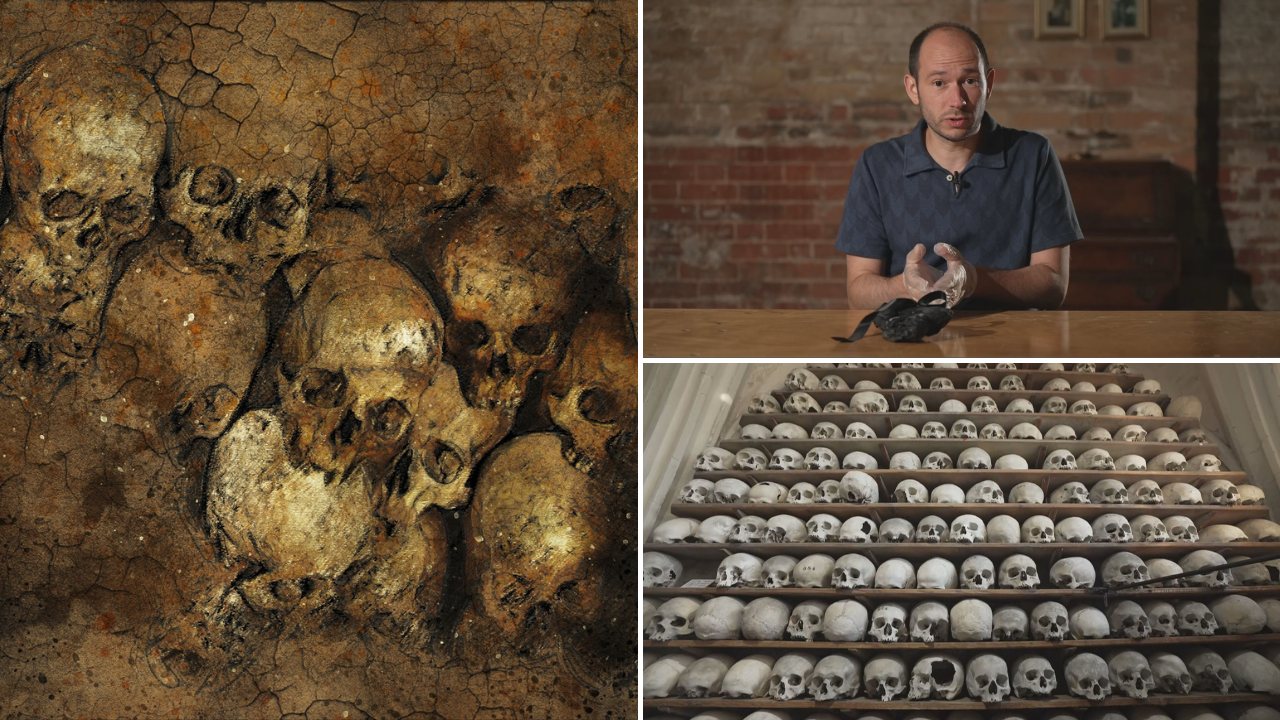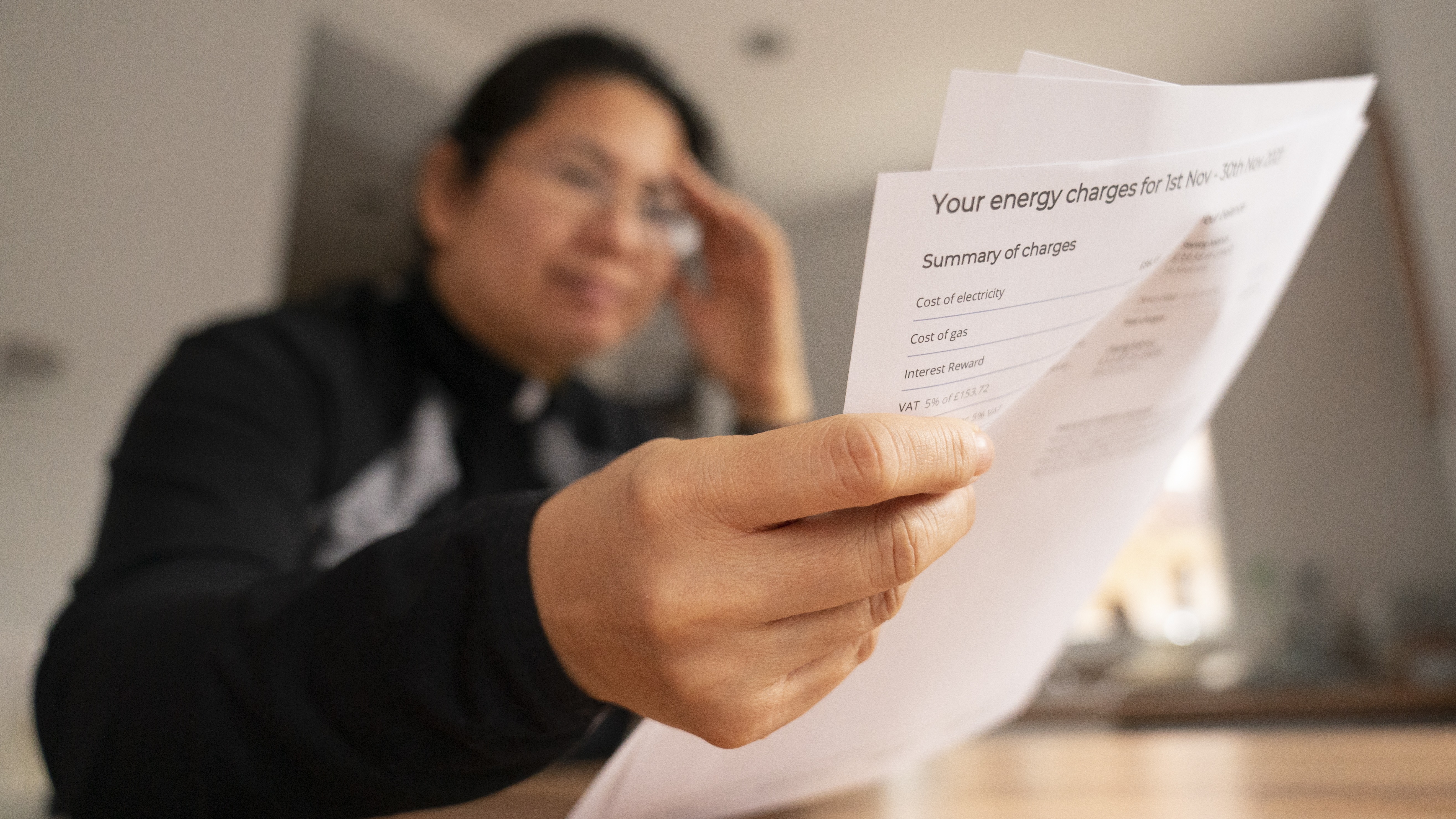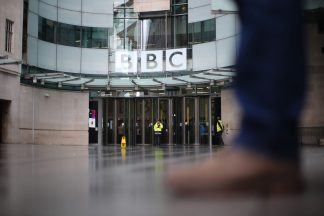An investigation by ITV News has found there are more than 80 active sellers on Instagram and Facebook alone, promising to deliver anything from human skulls to wallets made from human skin. A warning that this report from Sam Holder contains images of human remains and details you may find upsetting.
Words by ITV News Reporter Sam Holder and Producer Lois Smith
“I have a foot priced at £110, but I can do £95.”
A human spine. Earrings made of human teeth. Even a human skin wallet.
The dark trend of buying and selling human remains has grown into a multimillion-pound industry, with social media platforms serving as a marketplace for dealers in death.
ITV News has uncovered more than 80 active sellers on Instagram and Facebook, promising to deliver everything from skulls to foetuses, directly to customers’ front doors.
Some accounts even advertise bones from what appear to be murder victims.
Operating in a legal grey area, the trade is completely unregulated, and it is nearly impossible to trace where, or who, the body parts have come from.
The remains end up being displayed as “curiosities” in people’s homes, or turned into jewellery or art, as well as used in witchcraft and magic rituals.
ITV News’ Sam Holder reveals the human remains bought online
In order to investigate and prove the accounts are actually selling real remains, we purchased a random assortment box from one online seller, costing £100.
Through the post arrived a neatly packed bundle, wrapped in black paper and tied with a black bow.
Inside, five bones and a handwritten note explaining that we’d received a human rib, finger bone, vertebra, clavicle and a singular kneecap.
Neither the online listing nor the package contained any details about the origins of the bones nor the age.
All the pieces were confirmed by a forensic anthropologist to be as advertised – genuine human bones – although the seller had confused a finger bone with a toe bone.
According to the forensic expert, the bones were most likely from either one or multiple ex-medical skeletons. This was based on how they’d been preserved and the presence of two small holes on the vertebra, which would have been used to run wire through in order to hold the skeleton together.
It was impossible to say without destroying the bones whether they all came from the same human being.
Ex-medical skeletons appear to form the majority of the market, but some accounts offer remains still featuring bits of skin and hair, or with significant discolouration, that indicate they were taken from graves, crypts or morgues.
Patrick Pester, a journalist and human remains expert, told ITV News the bones include those of adults, babies and foetuses, representing ‘almost every different ethnic group’
Prices can range dramatically, with bones from children and those with disabilities fetching far higher amounts.
An adult skull can start at around £400, while a child’s skull costs nearly £4,000.
Skin – described as “human leather” – is particularly rare and expensive, with a wallet costing nearly £5,000.
Experts believe that the trade in human remains has increased by around 500% over the past five years.
While once it would have been incredibly difficult to purchase body parts, the market has opened up due to social media.
Jelena, an osteologist, told ITV News that it is not currently illegal to sell human remains in the UK.
Jelena Bekvalac is an osteologist (a scientist who studies bones) and president of BABAO, the British Association for Biological Anthropology and Osteoarchaeology.
The group is calling for an urgent change in UK law in order to bring in tougher restrictions on the buying and selling of human remains.
“I think everyone would be very shocked,” Bekvalac said. “Because I think everybody would think that there are regulations in place to prevent [the trade].”
Is this legal?
Currently, it is effectively legal to buy and sell human remains online – provided they are not intended to be used for transplants.
Under the Human Tissue Act, human body parts that are less than 100 years old are not allowed to be displayed without a licence, but this does not apply to private homes.
The sourcing of remains is even murkier legally.
Although disturbing a grave or exhuming bones is very much illegal, the law does not explicitly prohibit selling human remains once they are removed, creating a legal grey area.
This is partly because, in general, under the law, human remains cannot technically be owned.
Even though the act of grave robbing itself is a crime.
Where have the remains come from?
Perhaps the biggest question mark is where sellers source human body parts from.
The vast majority of listings online claim to be selling ex-medical specimens, but even these are ethically questionable.
Large numbers of skeletons, particularly from the Victorian period, but even more recently in India and China, were stolen from graves and morgues without permission.
Even those who did consent to having their bones used for training medical experts, in order to save lives, did not consent to having their bones displayed in people’s homes.
Other listings show bones which appear to have been buried, indicating they were potentially taken from graves for the purpose of selling online.
Some skeletons are discovered during construction projects for buildings and car parks, but most countries, including the UK, have strict rules which dictate that once bones are found, an archaeologist needs to be brought in to supervise and the bones should be reburied elsewhere or placed in a museum.
The sellers
We created an undercover account to speak to some of the sellers on social media. Most don’t reveal their names or locations, but there are several “death influencers” with thousands and thousands of followers.
None of the sellers we spoke to could accurately explain where the remains they were offering had originally come from.
We asked one whether they had any bones available to purchase, and their response was, “I have tons lol”.
Another seller tried to haggle, offering a discount on a “human foot priced at £110 but I can do £95”.
Despite questioning the origins of the remains, most of the sellers only provided vague answers, although one seemingly admitted they had been sourced as a result of grave robbing, saying “they are found in cemeteries and taken from ‘lost and trashed places’”.
Often, sellers claim that they are operating in line with the law as it stands and believe that their actions are ethical.
We have asked multiple sellers to take part in an interview. Every single one declined.
ITV News understands that Meta is in the process of investigating the content brought to its attention by this investigation.
Meta ads are not allowed to promote the sale of human body parts or fluids, and advertisers have to follow the platform’s community standards and advertising standards.
Follow STV News on WhatsApp
Scan the QR code on your mobile device for all the latest news from around the country




























